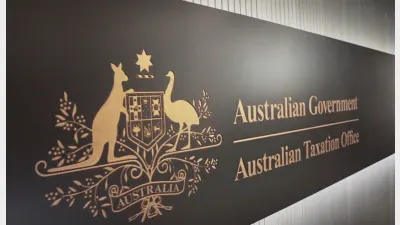Taxing times
The Federal Government may be forced to make further changes to the superannuation tax regime with the majority of submissions to the Parliamentary Inquiry into improving the superannuation savings of people under 40 pointing to tax as being a primary inhibitor.
In fact, any reading of the submissions so far received by the House of Representatives Standing Committee on Economics, Finance and Public Administration reveals remarkable unanimity on both the need to cut taxes and the efficacy of the Government’s superannuation co-contribution regime.
While people such as Government Senator John Watson may have been careful in the manner in which they have couched their suggestions with respect to the tax regime, the overwhelming message provided in the majority of submissions is that young people will be more inclined to save for their retirement if there are clear-cut incentives to do so.
Not surprisingly, the submission made by the Association of Superannuation Funds of Australia puts it most succinctly when it suggests that, “in order to better meet retirement income needs and expectations, contributions [should] be increased in effect to an amount equivalent to 15 per cent of wages, through a combination of compulsory contributions, voluntary contributions and tax relief.”
For its part, the Industry Funds Forum argues that there needs to be better education of superannuation fund members to encourage them to view superannuation as an investment in their future and their lifestyle, combined with an easing of the requirements of the Financial Services Reform Act to allow superannuation funds to provide basic advice without fear of breaching licensing laws.
The industry funds also argued for a reduction in the contributions tax for low income earners, by way of a tax credit of 15 per cent for those with taxable incomes up to $28,000, scaling back to zero for those with taxable incomes above $58,000.
The importance of the tax element in superannuation is made even clearer in the submission from Comsuper’s Leo Bator, who said there was no immediate advantage for contributing to superannuation.
“For example, there is no tax deduction and as superannuation cannot be assigned, it cannot be used as a security for borrowing to meet other needs,” he said. “In particular, self-employed people cannot get a tax deduction for 100 per cent of personal contributions.”
Like the Industry Funds Forum submission, Bator recommends both the implementation of an education regime, an expansion of the co-contribution regime, and changes that allow superannuation fund members to redraw a portion of the after-tax amount of their personal contribution.
The notion of age-based tax deductions was also suggested by Telstra subsidiary Australian Administration Services, which said consideration could be given to introducing an age-based tax deduction, or possibly a rebate, for voluntary contributions made to superannuation, “akin to the Lifetime Health Cover loadings but in reverse, commencing with the maximum available deduction at age 18 and phasing out to zero after age 40”.
“There are two main benefits to this scheme. Firstly, as preservation acts as a considerable disincentive to making superannuation contributions, especially for those under 40, a deduction or rebate may prove a more effective incentive than a co-contribution,” the AAS submission said. “Being returned at year-end as part of the tax return and assessment process (as opposed to being contributed to a superannuation fund as a co-contribution) may prove to be of particular assistance to younger persons and to those with little disposable income.”
A deduction rebate is also administered by the Australian Taxation Office as part of the annual tax return and assessment process, it said.
“Secondly, the annual reduction in the available deduction rebate, with the ‘window of opportunity’ closing at the end of each financial year, may act as an incentive and serve to overcome procrastination, which is only exacerbated in the under 40s by the view that retirement is so far off there is little immediate need to provision for it.”
While tax concessions and rebates were the focus for many submissions, so too was the notion that people should be compelled to make personal contributions, with the Small Independent Superannuation Funds Association suggesting “employees should be compelled or actively encouraged to make contributions to supplement compulsory employer superannuation support.
The SISFA also suggested that during the accumulation phase, there could be limited or controlled access to funds through a closely regulated investment fund system.
“This could be used, for example, for the purchase or building of a place of personal residence, paying for personal and/or direct family tertiary educational expenses, or for the purchase or lease of business property when the business is owned and conducted by the fund member,” its submission said.
Recommended for you
Super funds are strengthening systems and modelling member benefits ahead of payday super.
The Australian Taxation Office (ATO) has approved real-time payments for superannuation, removing a major hurdle ahead of payday super reforms.
The responsible investment body has emphasised the importance of clear communication as ART takes a substantial shareholding in Tabcorp.
Australian super funds have posted early gains in FY26, driven by strong share market performance and resilient long-term returns.











